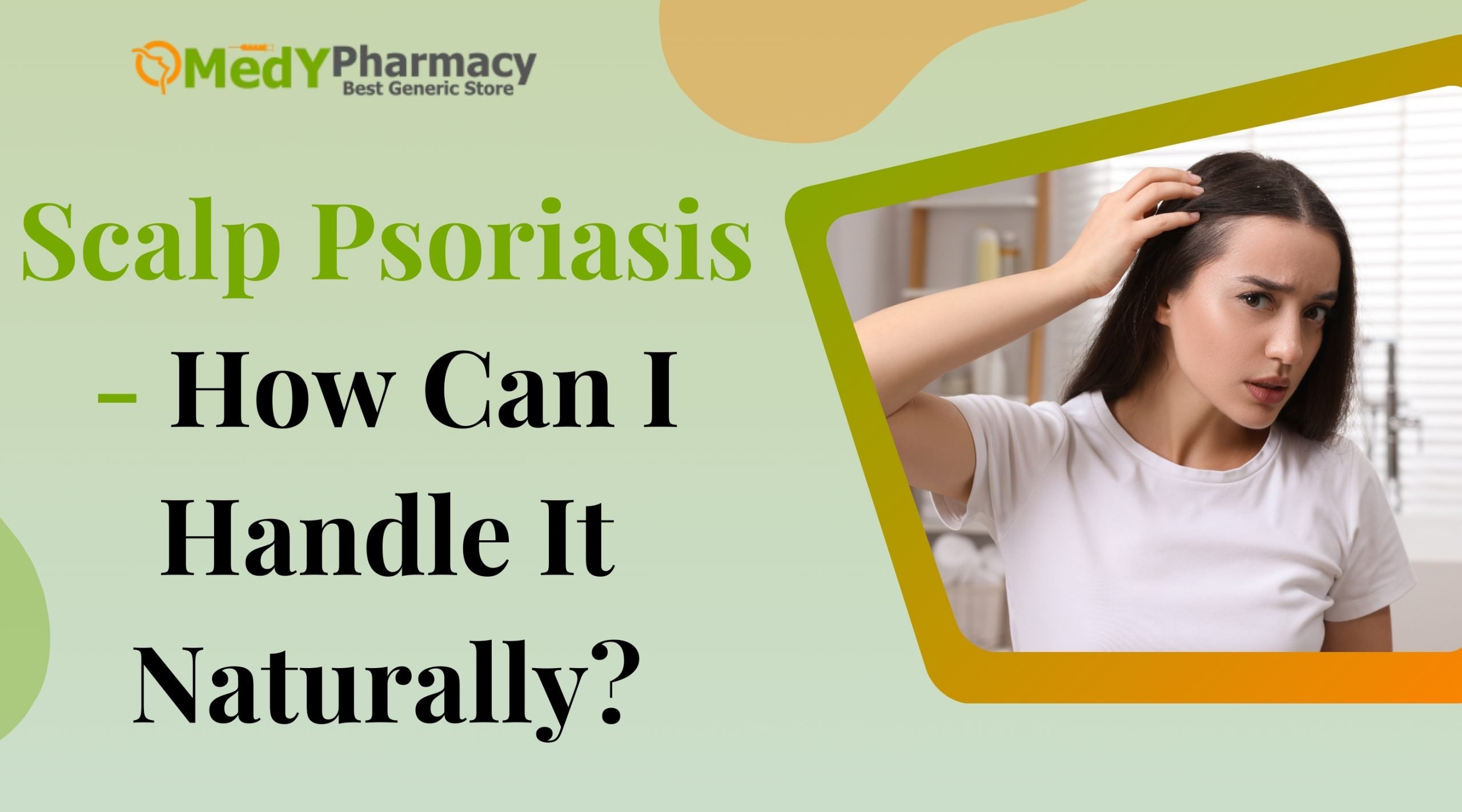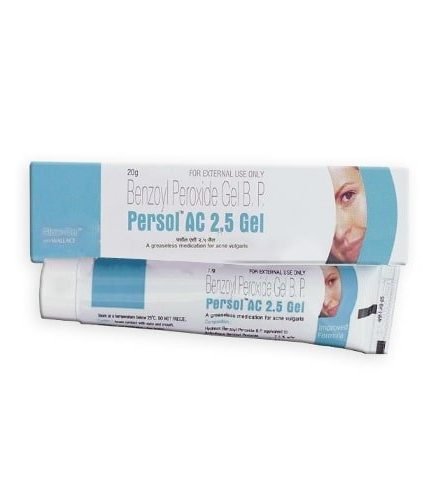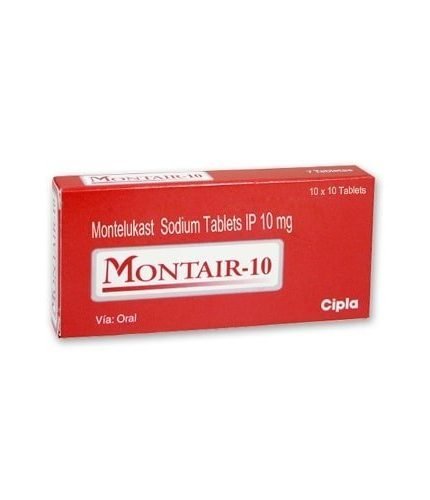Introduction:
Everyone will be impacted by the skin condition on their scalp if you ask them about psoriasis. However, the knees, elbows, and armpits are among the numerous areas of your body where this inherited skin condition might manifest.
During this period, you may experience typical problems including dry skin, scaly spots, and skin peeling. According to studies, this problem frequently causes skin cells to proliferate excessively, which leads to plaques. Additionally, some people may get itchy, red scalps.
It may just affect a small portion of your scalp, indicating that the problem is still minor, or it may occasionally impact the entire scalp, indicating that the problem has gotten worse. Despite a great deal of study and investigations, experts still don’t know how to treat it.
But it may be checked with the correct medicines. The best treatment, according to a specialist, is to apply Flucort N Cream to the skin of the knees and elbows.
But in this post, we’ll examine the many solutions for this problem when it affects your scalp.
After applying this kind of treatment, a dermatologist can assist if the psoriasis on the scalp persists. Even in cases when the psoriasis is severe, it is uncommon for someone to battle to control it for an extended period without the help of a dermatologist. This can assist those suffering from scalp psoriasis-related itching, scaling, hair loss, and bleeding.
The treatment plan you receive from a dermatologist is customized to meet your specific needs. A treatment plan frequently consists of many treatments. Depending on the time of day, you might need to treat your scalp differently. This may improve the efficacy of treatment and lessen adverse effects.
It is an autoimmune disorder. It results in dry, itchy, and irritated skin around your head, as well as elevated, discolored plaques on your scalp itself. You can reduce your symptoms with both prescription and over-the-counter drugs.
This affects the scalp in at least half of cases. Plaques, which are thick or powdery scales, are the result of your scalp’s skin cells growing too rapidly. They may be surrounded by red, itchy regions.
The entire scalp may experience modest scaling or crusting from scalp psoriasis, which can occasionally spread to the forehead, nose, beard, or behind or inside the ears.
It could go away on its own if your scaling is minimal. But occasionally, you will require medical attention. To control more severe dandruff, it may take many months or more. With some shampoos or moisturizers, you might be able to prevent it from flaring after you’ve done that.
Although there isn’t a cure for psoriasis, there are several ways to control it.
- The severity of it
- How it has previously reacted to therapy
- Whether psoriasis is present in other parts of your body
- Your hair volume
What Is Scalp Psoriasis?
This is a prevalent skin condition. Depending on the skin tone, it could appear different. It usually appears as elevated, reddish, or salmon-colored patches with white scales on light- to medium-skinned people. It may affect just one spot, many patches, or even your entire scalp. The back of your neck, the back of your forehead, and the inside and rear of your ears may also become affected.
You cannot get psoriasis on your scalp from someone else. The reason for this variety of is unknown, much like other varieties. Physicians think it stems from an immune system malfunction that leads to excessive skin cell growth and patch formation. The likelihood of developing scalp psoriasis may increase if it runs in your family.
Approximately 50% of the 7.5 million Americans who suffer from psoriasis, which can affect any part of the skin, have it on their scalp. Occasionally, although rarely, they simply have it on their scalp.
This may be subtle, hardly apparent. However, it can also be severe, and persistent, and result in thick, crusted sores. Severe itching can interfere with sleep and daily activities, and excessive scratching can result in skin infections and hair loss.
This is a chronic autoimmune condition that leads to excessive skin cell division. Your scalp and the surrounding areas develop thick, discolored skin patches as a result.
- Your hairline
- Your forehead
- Your neck’s back
- The area surrounding your ears
It might spread to the forehead, ears, or neck, or it can stay inside the hairline, however, it usually affects the back of the head. Itching and flaking that resembles dandruff can cause humiliation and misery, even though the hair usually hides it. It is usually a chronic, relapsing-remitting disorder that can coexist with any other kind of psoriasis or occur alone.
Medications Applied On the Scalp Psoriasis
This is the most often recommended course of action.
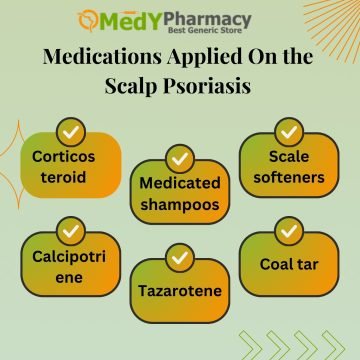
- Corticosteroid
This is a recommended therapy for both adult and pediatric scalp psoriasis. Corticosteroids diminish redness, swelling, itching, and scaling in a short amount of time. Compared to other scalp treatments, it is therefore more effective.
It’s a safe medication when taken as prescribed. Because long-term use of corticosteroids can have negative effects, your dermatologist could suggest using them in conjunction with another treatment. As a result, fewer adverse consequences may occur.
- Medicated shampoos
This frequently appears in a therapy plan. A shampoo containing clobetasol propionate may be recommended by your physician if you have persistent scalp psoriasis. When used as a shampoo, this can work well.
Patients can safely use this shampoo daily for up to four weeks, according to studies. For continued benefits, it’s okay to use it once or twice a week.
Specialized shampoos, particularly those with salicylic acid or coal tar as a component, can help control the symptoms of scalp psoriasis.
- Scale softeners
It may be difficult for the therapy you use to be effective if the psoriasis on your scalp is thick. Salicylic acid-containing products can soften tough, obstinate areas. Other components may also be useful.
Scale softeners are a crucial component of psoriasis treatment, especially for those with thick, scaly plaques. In addition to assisting in the reduction of scale accumulation, these medications enhance the efficacy of other topical therapies.
Depending on the severity of your disease and your skin type, it’s critical to speak with a healthcare professional to find the appropriate scale softeners. For those with psoriasis, regular use of the appropriate mix of therapies can greatly enhance comfort and look.
- Calcipotriene
The majority of individuals apply this synthetic vitamin D on their scalps before bed. Your dermatologist might also advise wearing a shower hat over your scalp once the medication has been applied. This makes it easier for the medication to go through the thick psoriasis areas.
Should you require a more potent medication, your dermatologist can recommend a combination of calcipotriene and a potent corticosteroid. This mixture may also lessen inflammation of the scalp. The medication is typically applied once daily for two weeks. It can be extended if needed.
- Tazarotene
Before bed, most individuals dab a small amount of this medication into their scalp. They take a shower after waking up. Your treatment regimen may include a potent corticosteroid, similar to calcipotriene. Better clearance may result from this.
This may work well for psoriasis, particularly when it comes to reducing scaling and plaque development. However, to reduce the possibility of adverse effects, its usage should be closely watched, and it is crucial to adhere to a healthcare provider’s recommendations. See your dermatologist to find out if tazarotene is the best course of action for your particular situation if you’re thinking about using it to treat psoriasis on your scalp or other regions.
- Coal tar
This is less common now, however, it can be suggested if your scalp itch. You will discover that certain psoriasis shampoos include coal tar if you go shopping. You may get those with a lower coal tar content without a prescription.
A popular treatment that lessens inflammation, itching, and scaling is coal tar. It can take the shape of oils, creams, or shampoos.
It works well for a lot of individuals, although it can smell bad and leave stains on clothes and hair.
Scalp Psoriasis Causes
When your immune system unintentionally targets your skin cells, this occurs. As a result of this onslaught, your body produces new skin cells up to 10 times quicker than usual. New skin cells now develop in days as opposed to weeks. Additionally, the body fails to eliminate the excess skin cells that accumulate on your scalp. The psoriasis spots and flaking are brought on by these accumulated skin cells.
If your parent has psoriasis, you may be at higher risk of developing it yourself because it runs in families. Even while you may have genes associated with a higher chance of developing psoriasis, you may not have it. Lack of these genes can also result in psoriasis.
- Infection
- Stress
- Alcohol
- Tobacco
- A cut, sunburn, or other skin injury
- Cold, dry weather
- Blood pressure
- Prednisone and hydroxychloroquine
Skin cells proliferate excessively rapidly, taking days instead of weeks to develop. The body is unable to remove these skin cells fast enough to keep up with the new growth. Psoriasis is brought on by its accumulation on the skin’s surface.
People are more likely to have scalp psoriasis if they have family members who have it. This condition is more common in people with HIV, stress, obesity, and smokers than in other people.
Scalp psoriasis vs. dermatitis
Common skin disorders that affect the scalp include dermatitis and scalp psoriasis. They have some of the same symptoms and treatments, such as flaking skin and discoloration. Your physician will be able to distinguish between these illnesses, though, because they have distinct causes.
Scales that are silver, violet, salmon, or red may be indicative of scalp psoriasis, depending on the skin tone. These scales are itchy and even painful, and they frequently grow past the hairline.
Dermatitis can cause dandruff and itching, which will vary depending on your skin tone. The typical appearance of dermatitis rashes on darker skin is gray, purple, or a shade darker than your normal skin tone.
Who Does Scalp Psoriasis Affect?
- Have some booze.
- Experience sadness or stress.
- Are obese.
- Use tobacco goods or smoke cigarettes.
- Take your drugs just sometimes.
- Suffer from further autoimmune conditions.
What Are The Physical Effects Of Scalp Psoriasis?
This results in the formation of thick, rough, scaly, dry, and discolored plaques on your scalp and surrounding skin. The plaques may cause discomfort or itching. Scratching your plaques might exacerbate the hair loss that can result from scalp psoriasis.
When you have scalp psoriasis, you may worry about how other people see you. Your conduct and self-perception may also be impacted. You could feel self-conscious or suffer from sadness, anxiety, or stress.
How to Manage Psoriasis on the Scalp
Dermatologists frequently advise patients to follow these guidelines to maximize the benefits of therapy for scalp psoriasis:
- Refrain From Scratching Your Scalp
Dermatologists are aware that psoriasis on the scalp may be quite irritating. On the other hand, scratching may exacerbate psoriasis. Bleeding of the scalp may result from scratching. Hair loss may also result from it, and this may become apparent.
- Take Care of Your Psoriasis to Stop Itching
The itching will cease as soon as the psoriasis resolves. Tell your dermatologist that you can’t stand the itching if that’s too long to wait.
- Use a Mild Shampoo
Shampooing the scalp can seem like the greatest option, but it’s not. It is common for scalp psoriasis to worsen when you massage, scrape, and scratch your scalp.
- Take Caution When Removing the Scale
You have to be kind. Picking can aggravate psoriasis. Hair loss is another consequence of picking.
- It Is Advised Dermatologists to Use a Scale Softener
Salicylic acid-containing scale softeners can help reduce the severity of psoriasis’s thick, recalcitrant patches. Additionally, it makes psoriasis medications more effective when these patches are softer. Make careful to raise your hair out of the way when administering medication to your scalp. By doing this, you can make sure the medication is applied to your scalp rather than your hair.
- Refrain From Worrying
It can be distressing when psoriasis flares up. However, feeling anxious might exacerbate the situation. Stress may make psoriasis worse. The hair on your head may fall out due to stress. It might be beneficial to find ways to relax.
Symptoms of Scalp Psoriasis
Signs of a mild scalp only mild, fine scaling is possible with psoriasis. Moderate to severe scalp psoriasis symptoms include:
- Rough areas that are red or purple
- Scales that are gray or silvery white
- Flaking dandruff-like
- Dry scalp
- The itching
- Flaming
- Feeling sore
- Hair loss
Consult your physician or dermatologist if you have any of these symptoms. Simply examining the skin or doing a skin biopsy can help them rule out related disorders like seborrheic dermatitis.
Scalp Psoriasis Hair Loss
Hair loss does not result from this alone. However, excessive picking or scratching at the scaly areas, severe treatments, and the stress associated with the illness might cause temporary hair loss.
Psoriasis-related inflammation of the scalp can also weaken and weaken hair roots. Hair loss can occur from little stress, disruption, or injury.
To Diagnose Scalp Psoriasis, What Tests Will Be Performed?
To rule out other disorders like eczema, seborrheic dermatitis (dandruff), or a fungal infection of the scalp that might be causing your symptoms, your healthcare practitioner may do several tests. Among the exams might be:
- Allergy examination.
- A biopsy.
- Blood tests to rule out other possible reasons for a rash than scalp psoriasis.
Systemic Treatment for Scalp Psoriasis
Using medications that impact the immune system to treat psoriasis is known as systemic therapy. The entire body is affected by these drugs. Approximately 10% to 20% of individuals with moderate to severe psoriasis use these medications.
This is moderate or severe and you are unable to accept other forms of treatment or they are ineffective for you, your doctor will only suggest systemic treatment.
The following systemic medications are used to treat psoriasis:
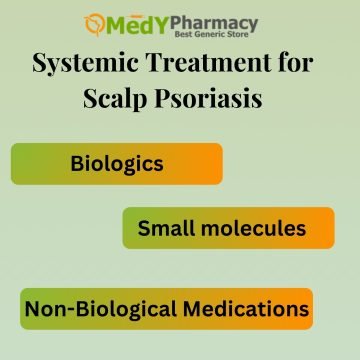
- Biologics
The cells used to make these medications are alive. In psoriasis, they target particular immune system components that are hyperactive.
- Small molecules
These medications affect immune cells that contribute to psoriasis. Among these are tofacitinib and apremilast.
- Non-Biological Medications
These medications include the following and are not derived from live cells:
- Methotrexate inhibits an enzyme that promotes the fast proliferation of skin cells.
- Because cyclosporine inhibits the immune system, it helps to lessen psoriasis inflammation.
- Oral retinoid that aids in regulating cell proliferation
The possible adverse effects of these therapies should be discussed with your physician. The Flucort-C Cream is often recommended by a doctor for direct action if the aforementioned treatments are ineffective.
If I Have Scalp Psoriasis, Should I Refrain From Eating Or Drinking Anything?
Some meals or beverages may exacerbate flare-ups of scalp psoriasis. It is advisable to maintain a food journal in which you record your food and beverage intake if you suffer from scalp psoriasis. By monitoring your food and drink intake, you and your healthcare practitioner can identify potential triggers for your flare-ups.
An anti-inflammatory diet may help you avoid flare-ups of psoriasis on your scalp. Among the foods with anti-inflammatory qualities are:
- Salmon
- Greens
- Olive oil.
Drinks and foods that might trigger flare-ups include:
- Alcohol
- Eggs and dairy, including cow’s milk.
- Gluten is a protein that is present in a lot of foods, particularly wheat.
- Tomatoes, potatoes, and peppers are examples of nightshade vegetables.
Treatment of Scalp Psoriasis
Although scalp psoriasis cannot be cured, it may be managed. The first step is to limit your exposure to the triggers. Lower your stress levels, lose weight, quit smoking, cut back on alcohol, and monitor your prescription use. Home cures for psoriasis of the scalp are also an option, albeit they are not advised.
The primary method of therapy involves topical use of medicated shampoos, creams, gels, lotions, sprays, and other products. For example, doctors may recommend salicylates, vitamin D derivatives, retinoids, coal tar shampoos, corticosteroids, etc. Avoiding self-medication is crucial since it may have unforeseen repercussions.
If none of these work, you may be offered oral medicine. Doctors even provide injections or scale softeners to certain patients. All of these, however, are based on specific instances. Psoriasis has also seen a rise in popularity because of phototherapy, which reduces inflammation by using UV radiation. It has, in some instances, had favorable outcomes.
Scalp psoriasis: How is it treated?
Several variables will affect how scalp psoriasis is treated, including:
If you’re taking any drugs, the severity of your symptoms, any underlying illnesses you may have, and your overall health
In addition to preventing issues like hair loss, your treatment strategy will try to relieve your symptoms. At-home cures and prescription or over-the-counter (OTC) drugs may be suggested by a healthcare provider.
Home Remedies for Scalp Psoriasis
The following natural remedies are safe and effective for mild to moderate cases of scalp psoriasis. Before beginning home therapy, it is recommended to see your physician, particularly if the problem is more serious.
- Aloe Vera
One plant with a reputation for healing skin is aloe Vera. Creams with 0.5% aloe can help lessen scalp flaking, irritation, and itching. Up to three times a day, you can use this cream to help keep your skin hydrated. It might take up to a month before you begin to experience and notice benefits.
A mild yet efficient natural treatment for scalp psoriasis is aloe Vera. It is a great choice for many psoriasis sufferers because of its capacity to hydrate, calm inflammation, lessen itching, and encourage healing. For severe psoriasis, aloe Vera may not be a suitable substitute for pharmaceutical therapies; nonetheless, it can be a useful supplement to your skincare regimen in terms of alleviating symptoms and enhancing scalp comfort.
- Capsaicin
According to some, psoriasis-related discomfort, skin discoloration, inflammation, and flaking can be lessened by topical treatments containing capsaicin. Nevertheless, the clinical effectiveness of these therapies is not well supported by data, and further study is required to fully comprehend their mechanisms.
- Coconut oil
Healthy fats included in coconuts improve the condition of the skin. Coconut and other oils are used in many topical psoriasis treatments to help reduce inflammation and ease thick plaques.
Psoriasis of the scalp can be effectively treated with coconut oil, a mild, natural treatment. Its antibacterial, anti-inflammatory, and moisturizing qualities make it a useful tool for calming the scalp, minimizing flakiness, and enhancing skin health in general. A psoriasis treatment regimen may benefit from the usage of coconut oil, either by itself or in conjunction with other natural treatments.
- Mahonia aquifolium
Mahonia aquifolium, often known as barberry or Oregon grape, is a plant that influences the immune system. Because of this, scientists think it might help cure psoriasis of the scalp by lowering inflammation and other symptoms. Choose creams with a 10% concentration.
The North American natural plant Mahonia aquifolium, sometimes referred to as the Oregon grape, has long been utilized for its therapeutic qualities. Numerous skin diseases, including psoriasis, have been investigated about the bioactive chemicals found in the plant’s roots and bark.
- Oatmeal colloidal
You can lessen the symptoms of your scalp psoriasis by adding a cup of uncooked, unflavored ground oats to a warm bath and letting them soak for about fifteen minutes. When used topically, oatmeal-based topical medicines have also been shown to lessen psoriasis symptoms.
- Omega-3 fatty acids
As part of their lifestyle, many psoriasis sufferers take omega-3 supplements. These substances have the potential to lessen psoriasis symptoms’ intensity and inflammation. Research on their effectiveness in reducing psoriasis symptoms is inconclusive, nevertheless.
Nevertheless, in the majority of situations, omega-3 supplements are safe to use and can contribute to a well-rounded, nutritious diet.
- Sea or Epsom salt
The symptoms of scalp psoriasis may be lessened by soaking your entire body, including the afflicted area of your head, in warm water with Epsom salt or dissolved sea salt. The American Academy of Dermatology Association advises limiting all baths to 15 minutes or less and using warm, not hot, water.
Two well-liked natural treatments that can help calm the skin and relieve the itching, irritation, and scaling associated with scalp psoriasis are sea salt and Epsom salt. These salts include minerals that can help regulate psoriasis symptoms and promote healthy skin.
- Medicated shampoos
For the treatment of scalp psoriasis, there are several over-the-counter, specifically formulated, non-medicated shampoos available. These frequently include salicylic acid to dissolve plaques, coal tar, and moisturizers to reduce irritation. Follow the bottle’s instructions for use.
- Tea tree oil
One plant that is thought to help with inflammatory skin disorders is the tea tree. It functions as an antibacterial and may lessen the psoriasis-related inflammation and pigmentation of the scalp. Despite being a well-liked natural therapy, there isn’t much evidence to support its effectiveness in treating psoriasis of the scalp.
- Turmeric
One plant that is widely known for its antioxidant and anti-inflammatory qualities is turmeric. Taking a turmeric pill every day or attempting to use more turmeric, either powdered or fresh, in their cooking might help people with scalp psoriasis feel less stressed. A regular intake of 1.5 to 3 grams of turmeric is thought to be beneficial and safe.
- Vitamin D
Some people may find that exposure to direct sunshine helps alleviate the symptoms of scalp psoriasis. Supplementing with synthetic vitamin D is another choice.
It is crucial to follow proper skin safety procedures outside, such as avoiding direct sunlight and using an appropriate SPF. Additionally, some folks could think about going outside in the morning when the sun isn’t as strong. If you’re taking medicine for psoriasis, consider talking to your doctor beforehand because some drugs might increase your risk of sunburn.
The Doctor’s Office Treatments for Scalp Psoriasis
Your dermatologist or doctor could think about intralesional steroid injections if you have mild psoriasis in a few spots on your scalp. To lessen inflammation, a tiny needle will be used to inject medicine into the scalp plaques. This technique is available at the doctor’s office.
If topical therapies are ineffective for your symptoms, phototherapy with a laser or non-laser light source can be helpful. An excimer laser, for instance, bypasses the healthy skin around afflicted regions and concentrates intense light there.
UV light, which is sometimes applied with a portable equipment known as a UV comb, can be used to treat the whole scalp. If you have thick hair, it could be beneficial to split it in rows since hair might block the light from getting to your scalp. If your head is shaved or your hair is really thin, your doctor could advise you to spend short amounts of time outside in the sun.
How Does Psoriasis On The Scalp Manifest?
Despite being a chronic, relapsing-remitting disorder, scalp psoriasis can be treated in a variety of ways. Even though topical therapy is the cornerstone of treatment, scalp disorders can be difficult to treat due to their location and the existence of hair.
Treatment results and tolerance may be enhanced by the use of more recent topical formulations, such as foams and sprays. Immunomodulatory drugs and biological therapies are among the several systemic medicines available to individuals with moderate-to-severe illness who do not improve with topical therapy.
Common skin conditions like itching and pain can be caused by scalp psoriasis. Furthermore, it might alter the appearance of your scalp and hair.
By examining your scalp and inquiring about your medical history, both personal and familial, a doctor may typically make the diagnosis. Your doctor may probably suggest over-the-counter (OTC) skincare products to you first.
Medypharmacy is another option; it employs one of nature’s greatest dandruff cures and its ability to eliminate the bacteria that causes dandruff on your scalp.







